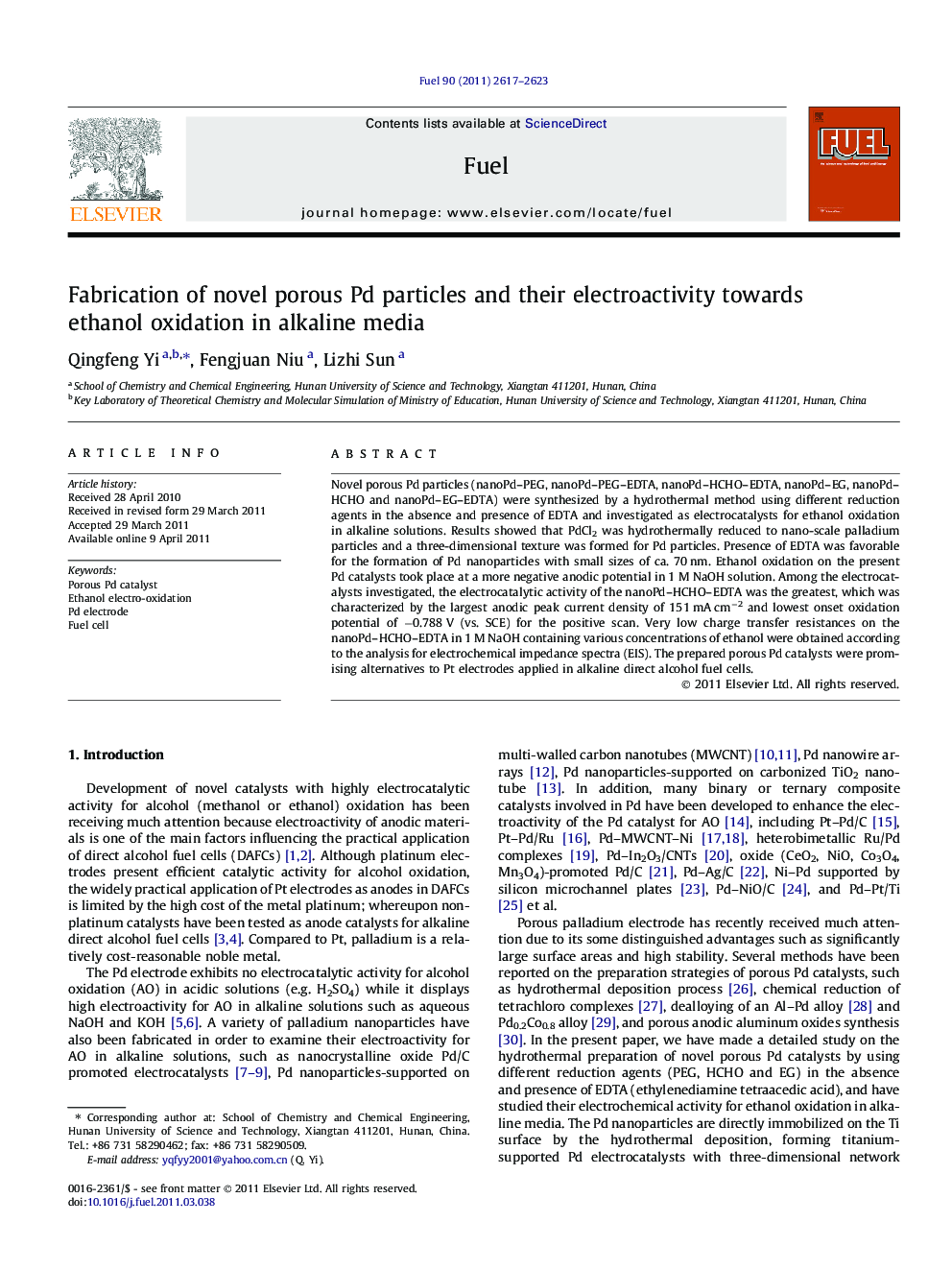| Article ID | Journal | Published Year | Pages | File Type |
|---|---|---|---|---|
| 10272746 | Fuel | 2011 | 7 Pages |
Abstract
Novel porous Pd particles (nanoPd-PEG, nanoPd-PEG-EDTA, nanoPd-HCHO-EDTA, nanoPd-EG, nanoPd-HCHO and nanoPd-EG-EDTA) were synthesized by a hydrothermal method using different reduction agents in the absence and presence of EDTA and investigated as electrocatalysts for ethanol oxidation in alkaline solutions. Results showed that PdCl2 was hydrothermally reduced to nano-scale palladium particles and a three-dimensional texture was formed for Pd particles. Presence of EDTA was favorable for the formation of Pd nanoparticles with small sizes of ca. 70Â nm. Ethanol oxidation on the present Pd catalysts took place at a more negative anodic potential in 1Â M NaOH solution. Among the electrocatalysts investigated, the electrocatalytic activity of the nanoPd-HCHO-EDTA was the greatest, which was characterized by the largest anodic peak current density of 151Â mAÂ cmâ2 and lowest onset oxidation potential of â0.788Â V (vs. SCE) for the positive scan. Very low charge transfer resistances on the nanoPd-HCHO-EDTA in 1Â M NaOH containing various concentrations of ethanol were obtained according to the analysis for electrochemical impedance spectra (EIS). The prepared porous Pd catalysts were promising alternatives to Pt electrodes applied in alkaline direct alcohol fuel cells.
Related Topics
Physical Sciences and Engineering
Chemical Engineering
Chemical Engineering (General)
Authors
Qingfeng Yi, Fengjuan Niu, Lizhi Sun,
